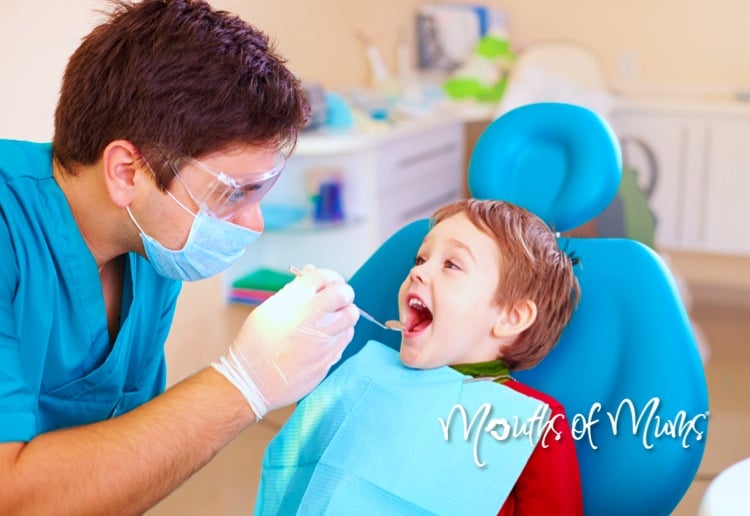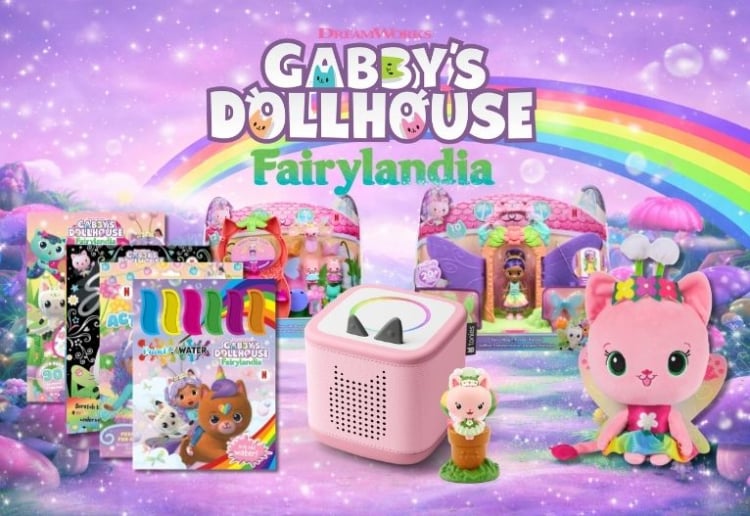It is just as important for children to have their teeth checked by a dentist as it is for adults.
Early detection of problems with tooth decay or crowding can lead to less dental treatment over their lifetime and early positive experiences mean that the child does not grow up with any fear of the dentist.
For most children, the experience is easy and no problems are found, but this can still lead to positive reinforcement of their cleaning and sugar intake.
When should I bring my child to the dentist for the first time?
There is no definitive answer for this as it varies from child-to-child. We want the first experience to be positive, and earlier is better. Saying that, every child is different and it depends on their comfort with strange people and a strange environment. Only you will know when is right for them. They can come as early as two years old for a routine examination, but they should certainly be coming by six years old. At six, their adult teeth come through (erupt), so any problems with the baby teeth need to be identified prior to start of the adult teeth eruption, to prevent spread of tooth decay or other dental diseases to their permanent teeth. Those that come regularly as children are also more likely to continue that habit as and adult leading to better dental health throughout their life.
At any age though, if you see something that concerns you, you can bring the child in to just check this problem. We never want a child’s first visit to be an emergency visit as there is an increased risk they have a negative experience, possibly leading to less compliance later on. Unfortunately, this is not always possible to avoid as they may have a fall or other accident and need to attend their first dental appointment at a stressful time. Should this happen, it is important to start following up with routine visits soon afterwards to desensitise them to this bad experience as they grow up. That way the bad association with a dentist fades and positive experiences are outweighed. It is for this very reason they usually get a reward, usually a stickers, at the dentist. This reinforcement of a positive experience at the end is very helpful to getting them on board with their dental care.
What will happen at a child dental check up?
A child’s dental check up is similar to an adult dental check up. We check all their soft tissues for any problems and then carefully check each tooth for problems. Their development is assessed to ensure that their dentition is within the normal range for their age. The crowding and alignment of their teeth is checked to see if there is any need for orthodontic treatment, or if future orthodontic treatment will be needed. After this their teeth are cleaned and usually a fluoride treatment is applied to their teeth to help prevent tooth decay in the future. Your dentist will discuss if dental x-rays are appropriate.
This is all dependent on their compliance, which can vary due to age. If they are not comfortable, the appointment is stopped early, even if this means their teeth are just checked, rather than cleaned also. Their long term dental health is more important than any individual visit. Again depending on their age, the whole process can be made into a game. For young children, rather than checking their teeth for problems, we tell them we are counting their teeth. Rather than sitting in a dentist chair, they have a ride in the magic chair. The kids can then be excited about their appointment, learn about their teeth (how many) and hopefully stay involved as they get older.
How can I prepare my child for their first dentist visit?
First and foremost, children have no past experience or hang-ups about the dentist. They have no reason to fear dental treatment. The only reason they will have fear of a dentist is if someone has told them that they should fear the dentist. Therefore, it is important not to even joke about the dentist being bad or painful. When they are old enough to have formed their own opinion about the dentist, they can share the joke, but they will not personally fear the dentist, or even worse have a dental phobia. Only talk about the positive side of treatment. Instead of having a filling, talk about fixing their hole. Instead of scraping the plaque, it is polishing their teeth to make them sparkle.
It is important to discuss the visit in advance so they know what to expect. Language suggesting a reason to be afraid should be avoided. A practice run at home, lying on their bed with a flashlight to “count their teeth” can help. Many children’s TV programs also have visits about going to the dentist and/or doctor and these can be helpful also. Rewards help also, so usually at the end of their visit, they will get a sticker, toy or colouring book as a prize. It is fine to let them know this in advance. Rather than saying it is due to the process of dental treatment, it can be just a reward for good behaviour and being brave to try a new thing.
Certainly seeing someone else at the dentist helps to demystify the process. If they have older siblings, they can watch as they have their check up or dental treatment. Another option is to bring them in to watch on your dental visit. You should only do this if you, yourself, do not have a dental phobia. Sometimes, despite all preparation, children just react badly to a new experience. If this is the case, the appointment can be abandoned for now and reattempted a little later. Sometimes months later, if they are not yet old enough or mature enough, sometime hours or days later, if it was just a case of bad timing!
How many teeth should my child get and when do they come through?
Usually the first teeth come through at 6 months old, continuing up to about two and half years old. In total there are 20 deciduous teeth. These are also known as milk teeth or baby teeth or collectively as the primary dentition. From about 6 years old, the first molars will come through at the back, behind the baby teeth. Then the primary dentition is progressively lost, tooth-by-tooth. Eventually by about 12 years old, they will have a full set of permanent teeth, totalling 28 teeth. This does not include the wisdom teeth, which do not start to erupt until 18 to 21 years old.
There is variation between people. It is not unusual to be up to 12 months old before the first teeth come through, and they can even be present from birth. It is more important that they come in the correct order to prevent crowding, than the timing. For the first permanent teeth, it can be from as early as five or as late as seven for the first eruption.
Does Medicare pay for children’s dental treatment?
In certain circumstances Medicare Australia pay for children’s dental treatment. This is through a scheme known as the Child Dental Benefits Scheme. More information is available from the Department of Human Services. The government has flagged this scheme as possibly ending, so you should check availability before you make an appointment. Many dentists bulk bill for this scheme.
Have you taken your kids to a dentist yet? What was their experience like? Please share in the comments below.
Image courtesy of Shutterstock.com





















12:12 am
9:44 am
-

-
-
mom176586 replied
- 23 May 2016 , 12:50 pm
Reply9:01 pm
-

-
-
mom176586 replied
- 23 May 2016 , 12:51 pm
Reply4:18 pm
-

-
-
mom176586 replied
- 23 May 2016 , 1:02 pm
Reply11:03 pm
-

-
-
mom176586 replied
- 23 May 2016 , 1:03 pm
Reply7:49 pm
2:18 pm
3:00 am
9:27 pm
8:18 pm
8:10 pm
9:59 pm
2:33 pm
-

-
-
mom176586 replied
- 16 Apr 2016 , 12:06 pm
Reply6:05 am
-

-
-
mom176586 replied
- 13 Apr 2016 , 8:24 pm
Reply1:31 pm
-

-
-
mom176586 replied
- 12 Apr 2016 , 8:30 pm
Reply11:40 am
-

-
-
mom176586 replied
- 12 Apr 2016 , 12:10 pm
Reply- 1
- 2
- »
Post a commentTo post a review/comment please join us or login so we can allocate your points.